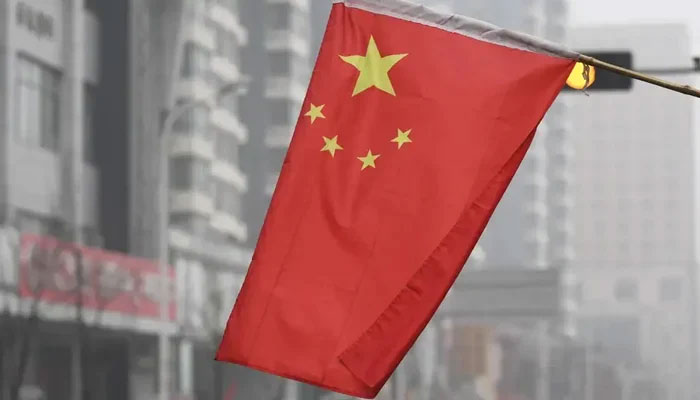China a role model in addressing environment and industrialisation issues
Islamabad: Sabheen Ghoury, Parliamentary Secretary for Information Technology, has called for consistent policies among governments to achieve sustainable progress stressing that environmental challenges were transnational and necessitate a collaborative approach. Ms Ghoury was addressing a roundtable on “Pak-China vision for a sustainable future: ecological civilisation, environmental security, and global harmony” organised here by Institute of Regional Studies (IRS) in collaboration with China Global Television Network (CGTN) Urdu.
Dr Shakeel Ahmad Ramay, CEO, Asian Institute of Eco-civilisation, Research and Development (AIERD), discussed the Chinese notion of Ecological Civilization, rooted in Confucian teachings. He warned against hastily adopting Electric Vehicles (EVs) without sufficient infrastructure and emphasised the need to balance green transitions with livelihood concerns. Dr Rizwan from IRS, discussed China's role in global governance, especially concerning unconventional security challenges like climate change. He praised China's Green Revolution and its commitment to green energy, noting that China was the largest producer of various renewable energy sources, including hydro, wind, and solar.
Tasawar Zaman Babar, Programme Coordinator, CGTN Urdu, commended Pakistan's longstanding friendship with China which has persisted through various administrations. He emphasised the importance of aligning economic development with environmental concerns in light of the current climate crisis.
Khalid Taimur Akram, Executive Director, Pakistan Research Center for a Community with Shared Future (PRCCSF), emphasised that environmental hazards have regional, rather than national, implications. He argued that policies should reflect this regional scope and praised CPEC for its alignment with China's Clean Green Energy initiative, which various renewable energy and water conservation projects.
Asif Shuja Khan, former Director-General of Pakistan Environmental Protection Agency (PEPA), criticised 18th Amendment, which empowered provincial EPAs. He recommended focusing strategically on the transport and agriculture sectors and suggested measures such as utilising low-sulphur coal, conducting “Strategic Environmental Assessments” for the China-Pakistan Economic Corridor (CPEC) and planting trees along its route to promote carbon neutrality.
Irfan Tariq, former Director-General, Ministry of Climate Change, emphasised the need for Pakistan to focus on improving air quality and preserving glaciers by learning from China's experiences.
Jauhar Saleem, President, IRS, opened the session by stressing the roundtable's significance amid major environmental changes. He commended China for its efforts to mitigate the adverse environmental impacts of rapid industrialisation. He noted that, like their cooperation in economic and defense sectors, Pakistan and China also collaborate on critical issues such as climate resilience, mitigation and adaptation.
-
 18-month Old On Life-saving Medication Returned To ICE Detention
18-month Old On Life-saving Medication Returned To ICE Detention -
 Cardi B Says THIS About Bad Bunny's Grammy Statement
Cardi B Says THIS About Bad Bunny's Grammy Statement -
 Major Hollywood Stars Descend On 2026 Super Bowl's Exclusive Party
Major Hollywood Stars Descend On 2026 Super Bowl's Exclusive Party -
 Sarah Ferguson's Silence A 'weakness Or Strategy'
Sarah Ferguson's Silence A 'weakness Or Strategy' -
 Garrett Morris Raves About His '2 Broke Girls' Co-star Jennifer Coolidge
Garrett Morris Raves About His '2 Broke Girls' Co-star Jennifer Coolidge -
 Winter Olympics 2026: When & Where To Watch The Iconic Ice Dance ?
Winter Olympics 2026: When & Where To Watch The Iconic Ice Dance ? -
 Melissa Joan Hart Reflects On Social Challenges As A Child Actor
Melissa Joan Hart Reflects On Social Challenges As A Child Actor -
 'Gossip Girl' Star Reveals Why She'll Never Return To Acting
'Gossip Girl' Star Reveals Why She'll Never Return To Acting -
 Chicago Child, 8, Dead After 'months Of Abuse, Starvation', Two Arrested
Chicago Child, 8, Dead After 'months Of Abuse, Starvation', Two Arrested -
 Travis Kelce's True Feelings About Taylor Swift's Pal Ryan Reynolds Revealed
Travis Kelce's True Feelings About Taylor Swift's Pal Ryan Reynolds Revealed -
 Michael Keaton Recalls Working With Catherine O'Hara In 'Beetlejuice'
Michael Keaton Recalls Working With Catherine O'Hara In 'Beetlejuice' -
 King Charles, Princess Anne, Prince Edward Still Shield Andrew From Police
King Charles, Princess Anne, Prince Edward Still Shield Andrew From Police -
 Anthropic Targets OpenAI Ads With New Claude Homepage Messaging
Anthropic Targets OpenAI Ads With New Claude Homepage Messaging -
 US Set To Block Chinese Software From Smart And Connected Cars
US Set To Block Chinese Software From Smart And Connected Cars -
 Carmen Electra Says THIS Taught Her Romance
Carmen Electra Says THIS Taught Her Romance -
 Leonardo DiCaprio's Co-star Reflects On His Viral Moment At Golden Globes
Leonardo DiCaprio's Co-star Reflects On His Viral Moment At Golden Globes




